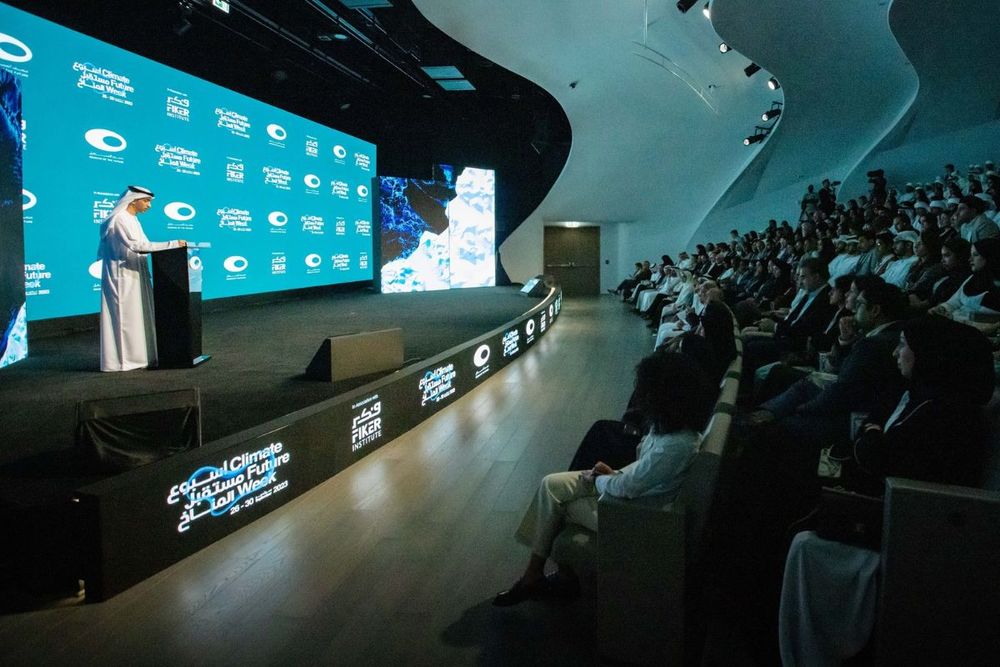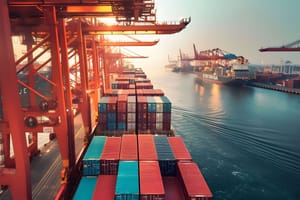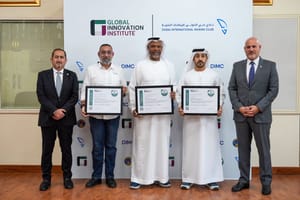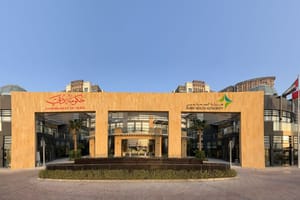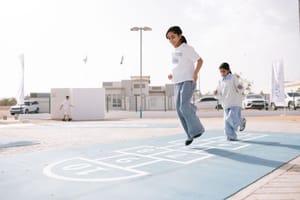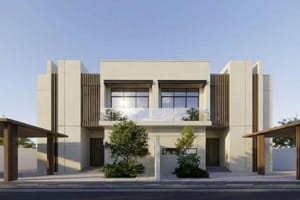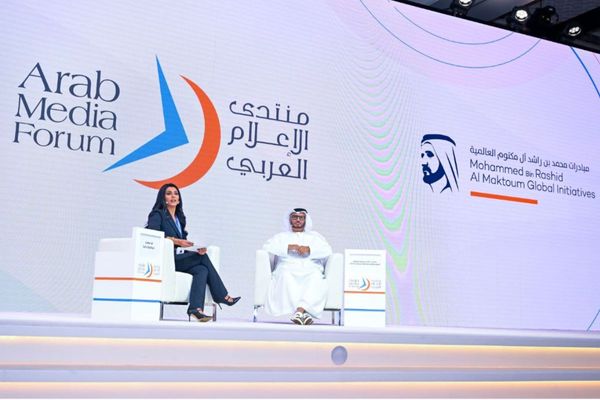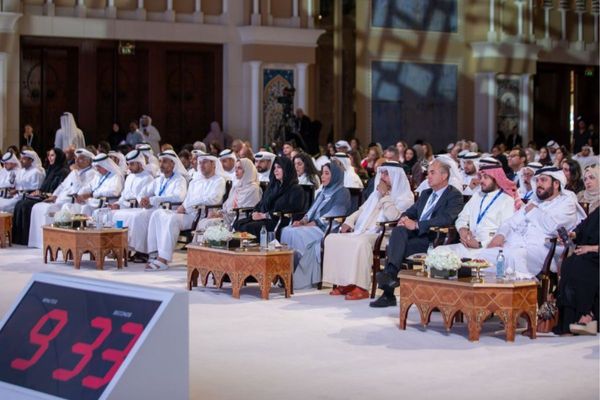The second day of Climate Future Week opened with a powerful keynote address by Dr. Thani Al Zeyoudi, Minister of State for Foreign Trade, who discussed the future of sustainable global trade in Dubai.
Dr. Al Zeyoudi said that the UAE has played a pioneering role in developing sustainable supply chains, investing in billions of dollars into reducing carbon within value chains. The country has also established a leadership position on the clean energy agenda in the region, and during the last decade has driven a major transformation, compared to other countries. Dr. Al Zeyoudi highlighted the Barakah Nuclear Energy Plant in Abu Dhabi as an example, which has contributed to reducing emissions by five million tons of carbon dioxide annually.
During his speech, Dr. Al Zeyoudi underlined the importance of global trade as a key driver of socio-economic growth and its role in facilitating equitable jobs, enhancing knowledge and raising quality of life. He concluded that it was of utmost importance to continue to work to reduce environmental impact, and the significance of regular reporting on progress to contribute towards the sustainable supply chains.
Sustainable architecture also featured prominently on the agenda, with a presentation from Arthur Huang, Chief Executive Officer and Founder of MINIWIZ, who shared updates on the UAE’s efforts in revolutionising architecture with global examples of innovative recycling projects transforming waste management throughout daily life. Mr. Huang showcased pioneering methods for reducing and reusing materials, with an interactive presentation showcasing how countries are meeting ambitious climate change goals through enhancing the circular economy.
The second day of Climate Future Week also witnessed Dr. Ayesha Abdulla Alkhoori, Emirati Material Scientist and Engineer, in her presentation on ‘Converting Carbon Dioxide for A Greener Future’. Dr Ayesha highlighted how climate change is occurring at an unprecedented pace and highlighted how we have the ability and technology to capture carbon emissions and contribute efforts to restoring the environment. Dr. Ayesha discussed multiple solutions including carbon capture storage as well as chemical conversion and utilisation, which can help support in achieving the United Nations Sustainability Goals. She went on to explain how collaboration between academic institutions, industry and government provides resources, scalability, and shared knowledge enabling the industry to develop tangible solutions that benefit both the society and the economy. She concluded:
“The ultimate goal is to efficiently harness air, sun, water and CO2 to synthesize molecules and materials, paving the way for a greener and more sustainable future”.
The afternoon sessions saw Andrew Dana Hudson, Author & Researcher; Imaginary College Fellow at the ASU Center for Science and the Imagination, discuss Cli-fi (climate focused science fiction), sci-fi, and societal reshaping, noting
“Climate change is part of our future and weaves in different themes such as artificial intelligence and geopolitics. Calling the future dystopian indicates that this is the end of the story and discounts the fact that things can get better or worse. With science and technology important to climate change, we see that climate action will be the main driver for the next 100 years.”
Later that afternoon, Wael Al Awar, Architect and Founding partner of Dubai and Tokyo-based firm WAIWAI reviewed climate-conscious designs and creative responsibility commenting:
“To meet the population growth we are expecting, we need to build a city the size of New York City every year. We are questioning how we do this sustainably when the construction industry is responsible for 40 percent of global CO2 emissions and cement alone is responsible for eight percent of global emissions. We need to explore more sustainable options. Over the past 100 years we’ve been building in the same ways, but as an architect today, I ask myself what is my responsibility and how can I address the challenge of the global climate crisis. I have been exploring alternative minerals to those included in concrete, helping to reduce its impact on the environment.”
The afternoon also witnessed an immersive session delivered by Abdullatif Al Banna, Emirati Businessman and Farmer who shared his perspective on agricultural resilience in extreme climates commenting: ‘Innovative agriculture methods may contribute to maintaining and improving climate quality.' He also pointed out that the Arab region enjoys a year-round sunny climate and is home to soil that is suitable for agriculture, meaning that a rich variety of crops can be grown during several months of the year, particularly during the period of November to the end of May. He also highlighted new techniques which support, and boost soil fertility, enabling crops to be grown on what was previously barren land.
The afternoon also witnessed an immersive ‘Architecture Resonating with Environment’ session with Takashige Yamashita, Principal and First-Class Architect and Founder of Takashige Yamashita Office, and Youngah Kang, Architect & Partner in Takashige Yamashita Office, who provided examples of innovative architectural practices for a climate positive future. Attendees were also provided with examples of global best practice within sustainable architecture, alongside an in-depth analysis of how global architectural design can make a positive impact.
The second day of Climate Future Week concluded with a panel entitled ‘Climate Responsible Creative Industries’ moderated by Amani Al Aidroos, Executive Content Producer at Museum of the Future, whereby panelists discussed how creatives can positively contribute to sustainability discussions and support climate action. With contributions from Brendan McGetrick, Creative Director at Museum of the Future, Andrew Dana Hudson, Author, Researcher and Imaginary College Fellow at the ASU Center for Science and the Imagination alongside Shamma Al Bastaki, Emirati Artist & Poet, the session considered how various forms of creative output can encourage environmental awareness and inspire long-term change.
Climate Future Week will conclude on Saturday 30 September 2023 with a powerful ‘Countdown to COP28’ discussion between His Excellency Dr. Sultan Ahmed Al Jaber, COP28 President-Designate, UAE Special Envoy for Climate Change, and Minister of Industry and Advanced Technology, and Her Excellency Razan Al Mubarak, UN Climate Change High-Level Champion for COP28 and International Union for Conservation of Nature President. The session will be moderated by Emirati Author, Rhodes Scholar, and Founder of Fiker Institute, Dubai Abulhoul.
News Source: Emirates News Agency
